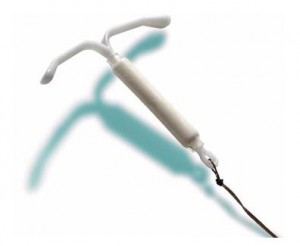FREE MIRENA CASE EVALUATIONS: CALL 1-800-632-1404
Our team of attorneys are now investigating claims and prepared to file Mirena lawsuitsinvolving the intrauterine contraceptive device Mirena®. Manufactured by Bayer Healthcare Pharmaceuticals, Inc., Mirena is an IUD device [intrauterine device] that must be inserted by a trained health care provider and is intended to provide contraceptive protection for up to five years. Some women have experienced serious adverse side-effects and potentially life-threatening complications following the implantation of theMirena device, including perforation of or imbedment in the uterus.
New Mirena Study Warns of Fatal Risk Caused by Mirena IUD Migration, Uterine Wall Perforation
Mirena IUD migration has the potential to cause permanent pelvic perforations and uterus damage. It forces users to undergo multiple surgeries to remove the device, perforated uterus, and treat infections. The risk can be fatal or leads to serious complications when the users become pregnant and require surgical removal of the device displaced. A research report published on the American Journal of Obstetrics and Gynecology has warned that migrated Mirena IUD can cause fatal ramifications for pregnant users whether it is removed or not.
Bayer introduced Mirena IUD in 2000 claiming that it was safe and could prevent pregnancy up to five years. However, the recent reports highlighting spontaneous migration of the intrauterine device leading to serious uterus injuries have created apprehensions about its safety and efficacy. Women across the United States have experienced uterine perforations, infections, pregnancy complications, and undergone multiple surgeries following the Mirena IUD displacement.
The most serious fallout of the Mirena contraceptive device migrating from its inserted place is its failure to prevent pregnancy. The IUD displaced without any intervention results in users getting pregnant, the very purpose the contraceptive is created to prevent. The floating of the IUD inside the abdominal cavity also poses significant risk for the fetus.
According to the latest research study, presence of Mirena intrauterine contraceptive inside the body may lead to septic abortion, miscarriage, and preterm labor. It also exposes fetus to complications caused by foreign body and hormone. Mirena removal surgery during pregnancy enhances the risk of infection, injury, and adhesion formation.
Mirena Migration Injury Lawsuit
A number of lawsuits have been filed claiming that Mirena removal surgery left plaintiffs with life-long injuries. While uterus perforation is the most common side effect injury, many victims were forced to undergo hysterectomy. A Californian woman has filed a Mirena lawsuit alleging that she faces no-viable pregnancy because of uterus removal necessitated by the IUD injury. The plaintiff suffered from pain and internal pelvic injuries prior to surgical removal of the T-shaped contraceptive.
Mirena perforation lawsuit began pouring in after research reports highlighted the risk of side effects that blunted the safe and secure claim of the manufacturer. In 2012, the number swelled with media reports highlighting incidents where women suffered from one or many of the following injuries caused by Mirena IUD.
- Perforation of uterus and uterine wall
- Pelvic infection, inflammation, and abscesses leading to various diseases
- Abdominal injuries and menstrual problems
- Hysterectomy
- Mirena IUD removal surgery
- Genitourinary complications and infections
- Ectopic pregnancy, miscarriage, and ovarian cysts
- Device failure to prevent pregnancy
- Pain and suffering leading to low-quality of life
Some of the Mirena lawsuits filed have raised questions on manufacturer Bayer promoting the IUD as a safe alternative to contraceptive pills. In December 2009, the FDA asked Mirena IUD manufacturer Bayer to mend its promotional campaigns that overshadow the risk of potential side effects.
In February 2013, two Mirena lawsuits filed in New York federal courts alleged that plaintiffs got pregnant while using the IUD. The reason was attributed to spontaneous Mirena contraceptive migration. They also suffered from uterine perforations and left with permanent injuries despite spending thousands of dollars on multiple surgeries. The lawsuits claim that the design defect in the Mirena IUD may be the primary reason behind its displacement.
Medical surveys published in the Obstetrics & Gynecology journal in 2012 also highlighted widespread apprehension among doctors over the safety problems and risks associated with Mirena IUD. About 60 percent of medical professionals interviewed in the first survey and 50 percent in the second one did not favor prescribing Mirena IUD to their patients because of its side effect injuries.
If you experienced adverse Mirena side effects, required surgery or have a loved one who suffered death following the implantation of Mirena, you may have a potentialMirena lawsuit.
FOR A FREE CASE EVALUATION:
CALL TOLL FREE: (800) 632-1404
EMAIL: clicking here.
FILL OUT THIS FORM FOR FREE HELP:
NOTE: Our team of attorneys will review potential cases for all fifty states, including Alabama Alaska Arizona Arkansas California Colorado Connecticut Delaware Florida Georgia Hawaii Idaho Illinois Indiana Iowa Kansas Kentucky Louisiana Maine Maryland Massachusetts Michigan Minnesota Mississippi Missouri Montana Nebraska Nevada New Hampshire New Jersey New Mexico New York North Carolina North Dakota Ohio Oklahoma Oregon Pennsylvania Rhode Island South Carolina South Dakota Tennessee Texas Utah Vermont Virginia Washington West Virginia Wisconsin and Wyoming.
